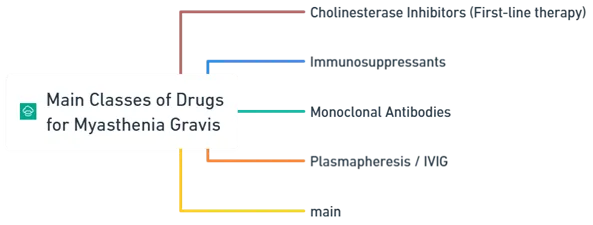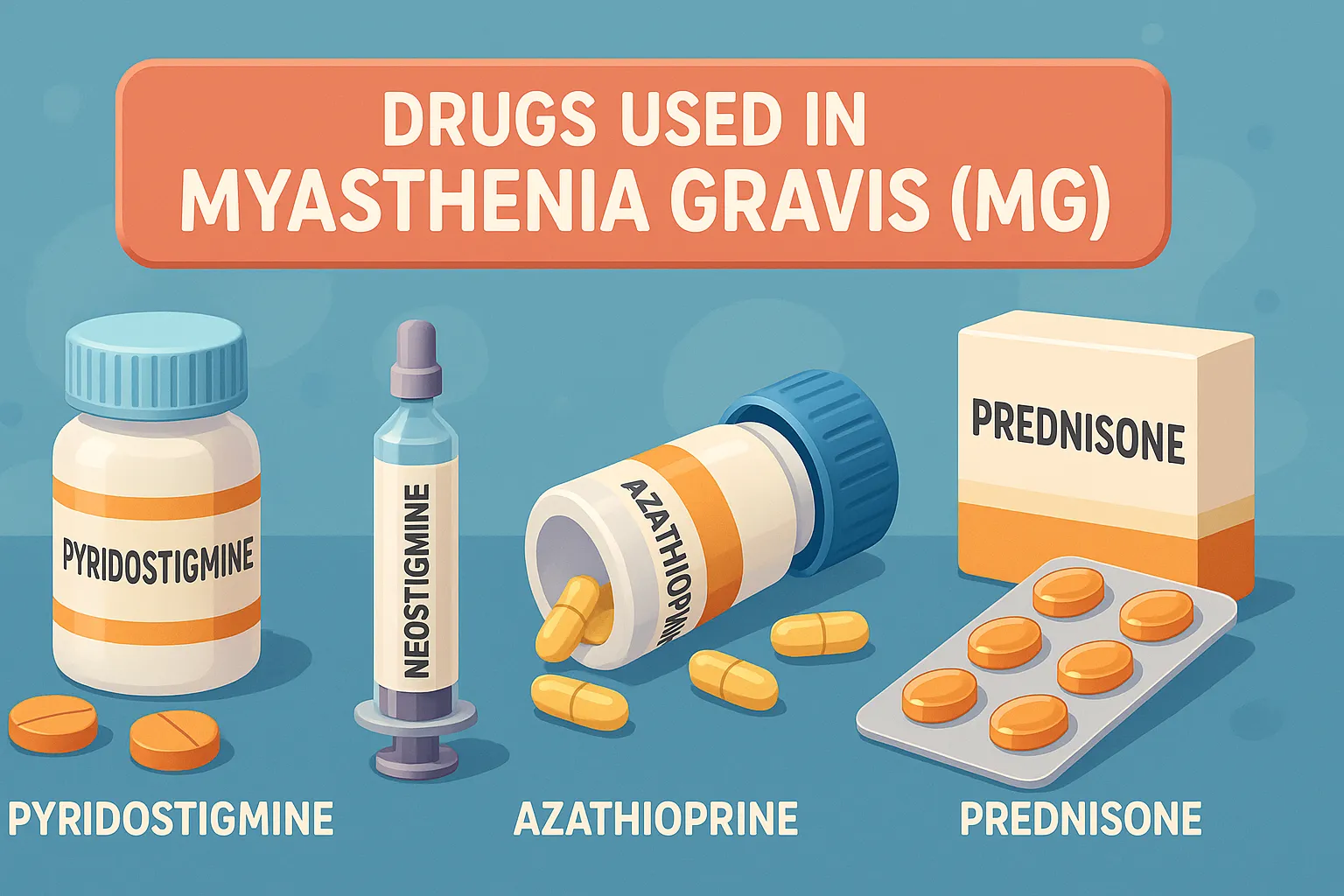Drugs for Myasthenia Gravis include cholinesterase inhibitors, immunosuppressants, and corticosteroids to improve muscle strength.
Pharmacological Goal:
- To increase acetylcholine availability at the neuromuscular junction and/or suppress the autoimmune response.
Main Classes of Drugs:

-
Cholinesterase Inhibitors (First-line therapy):
- Mechanism:
- Inhibit the enzyme acetylcholinesterase, increasing ACh levels at the neuromuscular junction.
- Examples:
- Pyridostigmine (preferred)
- Neostigmine
- Adverse Effects:
- Muscarinic effects: diarrhea, salivation, sweating, bradycardia
- These effects can be managed with antimuscarinic drugs (e.g., atropine)
- Mechanism:
-
Immunosuppressants:
- Used in moderate to severe or refractory cases.
- Examples:
- Corticosteroids: Prednisolone
- Other immunosuppressants: Azathioprine, Mycophenolate mofetil, Cyclosporine, Tacrolimus
-
Monoclonal Antibodies:
- Used for refractory generalized myasthenia gravis.
- Example: Eculizumab (targets complement protein C5)
-
Plasmapheresis / Intravenous Immunoglobulin (IVIG):
- Used in acute exacerbations or myasthenic crisis
- Temporarily remove or neutralize circulating antibodies

